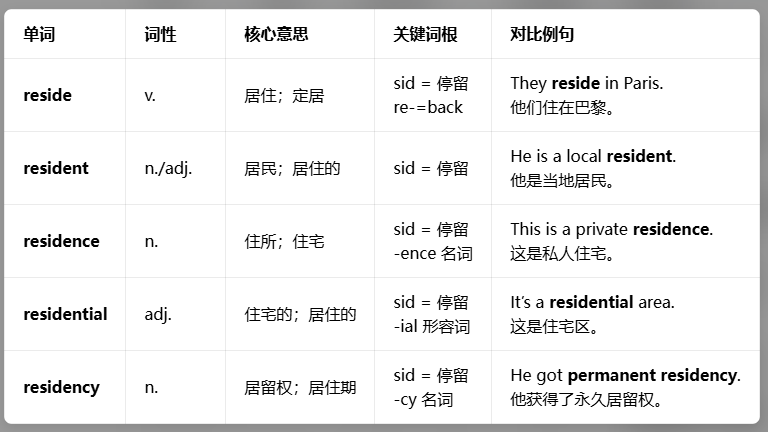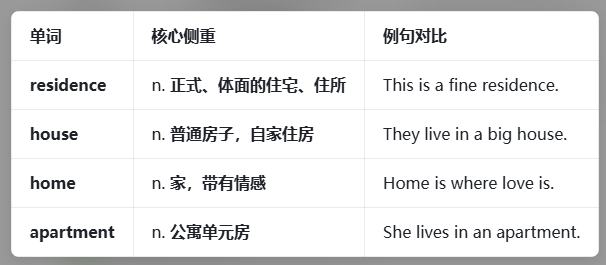Tuesday,2026.03.03
New words:
permanent [ˈpɜrmənənt] adj.永久的;持久的;固定的permanently ['pɜːmənəntli] adv.永久地;永远;长期;一直
详细词源拆解:
per- = 前缀:贯穿、始终、从头到尾
man = 词根:停留、保持(来自拉丁语 manere = stay 停留)
-ent = 形容词后缀
整体逻辑:始终停留不变的 → 永久的;持久的
词汇链:
permanent(adj. 永久的)→ permanently(adv. 永久地)→ permanence(n. 永恒)
必记高频搭配
permanent resident(永久居民)
He became a permanent resident last year.permanent job(固定工作;长期工作)
She wants a permanent job.permanent address(固定地址)
Please write down your permanent address.permanent damage(永久性伤害)
The accident caused permanent damage to his leg.permanently damaged(永久性损坏)
The file was permanently damaged.反义词:temporary [ˈtempəˌreri] adj.暂时的;临时的;短暂的
例句:This is permanent, not temporary.


